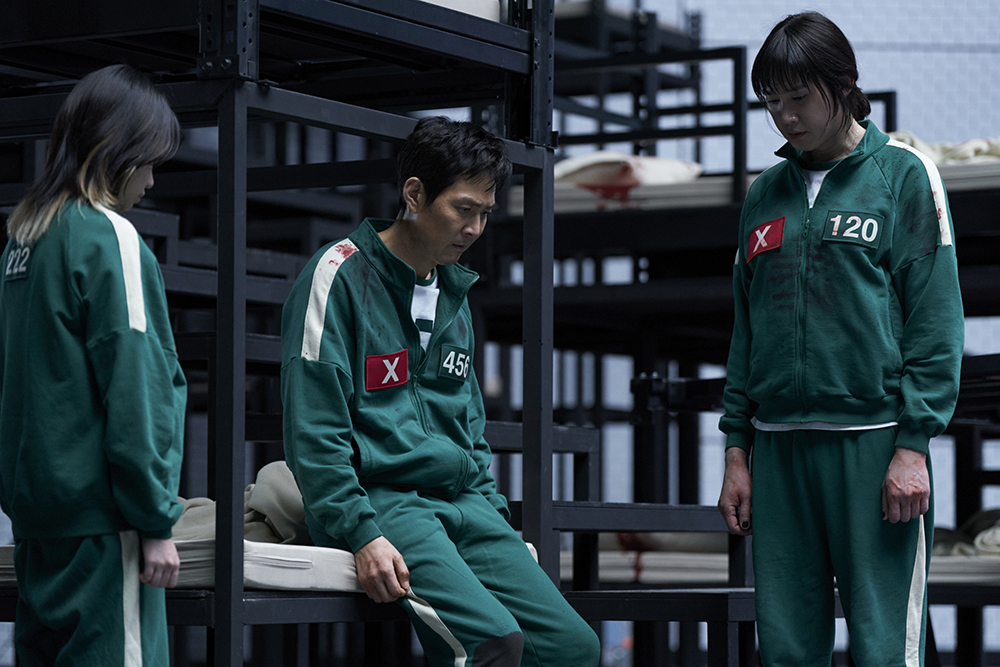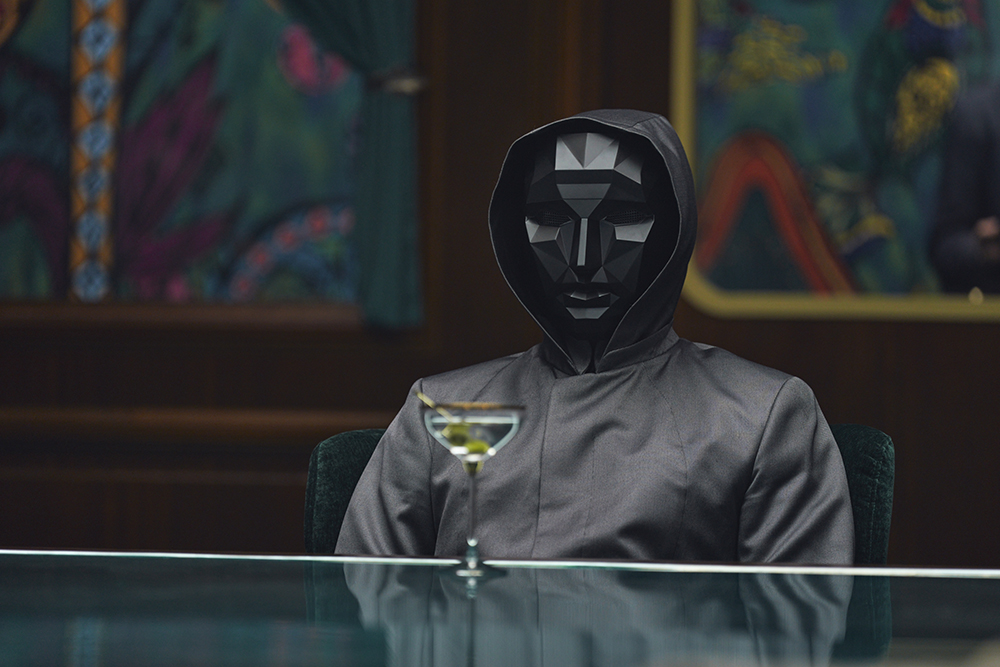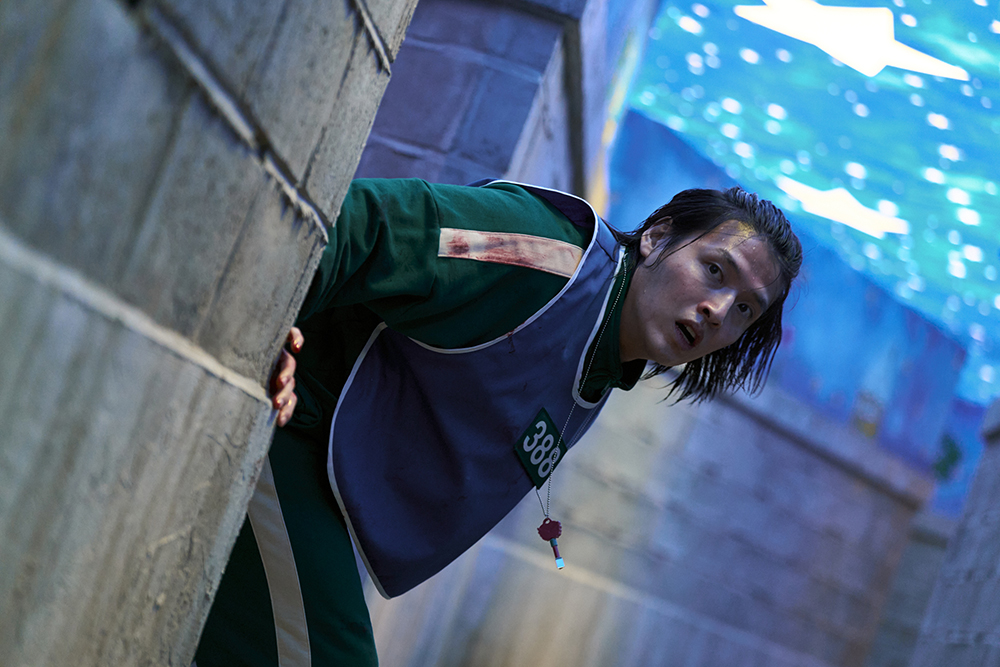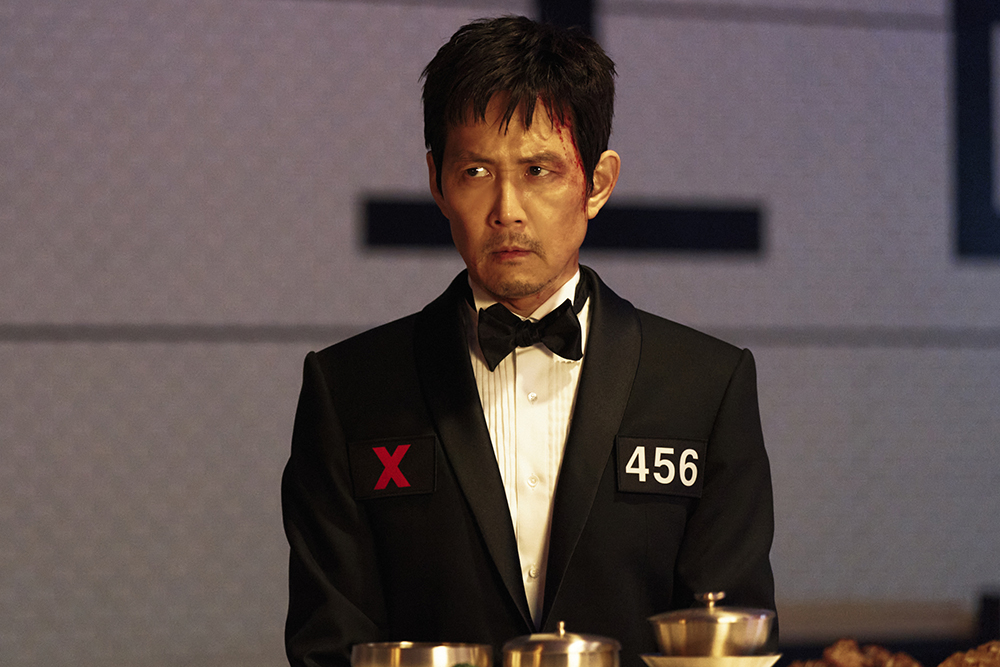Netflix - Squid Game Season 3: The Art of Ending with Unanswered Questions
By Mulder, 27 june 2025

In the landscape of modern television, very few titles have managed to etch themselves into the global psyche quite like Squid Game. And now, with the release of its third and final season, Hwang Dong-hyuk has delivered what might be the most haunting and ambitious chapter yet—one that transcends genre, expectation, and format to become a truly singular cultural artifact. This final season is not merely a continuation; it is a culmination. It stands as both a brutal reckoning and a profound elegy, echoing the themes of despair, power, and moral fragility that have underpinned the show from the very beginning. And through every frame, every beat of music, every anguished silence, the storytelling remains devastatingly precise, yet philosophically expansive. Without resorting to spoilers, this review will explore how Squid Game Season 3 reinforces its status not just as a pop culture phenomenon, but as one of the most sophisticated and unflinching dissections of modern societal collapse ever rendered on screen.
At the heart of this final chapter lies Seong Gi-hun, once again portrayed with astounding depth and transformation by Lee Jung-jae. His portrayal is the emotional spine of the series, and in this final stretch, Lee Jung-jae brings a performance of quiet implosion—every movement weighted by memory, grief, and an unshakable sense of duty. As viewers, we witness not just the return of a character but the arrival of someone irrevocably altered. What makes Seong Gi-hun such a compelling figure in this final season is the complex intersection of his moral compass and the unforgiving mechanisms of the world around him. His silence, his gazes, his moments of indecision—each become monumental. And yet, this is not a solitary journey. Surrounding him is an ensemble of players and masked operatives whose presence elevates the narrative with emotional nuance and ideological conflict.

Im Si-wan, delivering a breakout performance as Lee Myung-gi, navigates the story’s psychological and ethical battlegrounds with an intensity that feels both cerebral and primal. He is neither hero nor villain in a conventional sense, and that moral ambiguity is what makes his role essential to the final season’s thematic architecture. Jo Yu-ri, portraying Jun-hee, gives one of the most deeply affecting performances in the entire franchise—her scenes brimming with urgency, vulnerability, and a sense of looming tragedy. Meanwhile, Kang Ae-shim as Jang Geum-ja, and Park Sung-hoon as Cho Hyun-ju, offer two of the most quietly shattering portrayals, embodying the everyday strength and desperation of individuals thrown into a system designed to erase dignity. Yang Dong-geun’s Park Yong-sik and Lee David’s Min-su deepen the psychological tension of the ensemble, crafting characters who evolve and unravel with terrifying realism. Even Wi Ha-joon, returning as Hwang Jun-ho, continues to embody the narrative’s fragmented hope for justice and truth, despite being burdened by some of the show's least efficient narrative strands.
What distinguishes this third season from its predecessors is not just the escalation of the stakes, but the philosophical introspection woven into every narrative thread. Hwang Dong-hyuk is no longer simply presenting a satire of capitalism or a critique of social inequality; he is interrogating the very concept of human value. The season dares to ask: In a world governed by spectacle, where does the soul reside? And can integrity persist when survival becomes the ultimate prize? The games in this season are not just about life and death—they are metaphors for generational trauma, the dehumanization of labor, and the commodification of suffering. Without detailing the nature of these games, it is important to note that each new challenge is constructed not only for physical torment but for emotional disintegration. As viewers, we’re not asked to merely watch—we are implicated. There is a disconcerting recognition that we are participants too, not in the fictional arena, but in the systems and narratives that these stories reflect.

The production design by Chae Kyoung-sun is once again revelatory. Each environment is an allegory—a monstrous diorama of lost innocence and industrialized cruelty. The sets are vast, operatic, and deeply claustrophobic all at once. Pastel walls drip with irony, geometric corridors stretch like labyrinths of the mind, and every visual choice hammers home the surreal contradiction of childlike aesthetics paired with adult horror. Complementing this is the exquisite score by Jung Jae-il, whose music seamlessly weaves melancholy, tension, and defiance. His compositions act as emotional subtitles, articulating the subtext when words fail. Every note carries the burden of memory and the threat of oblivion.
Cinematographically, Kim Ji-yong’s lens captures both grandeur and grotesquery with equal clarity. From intimate character close-ups that tremble with emotion, to wide, oppressive compositions that swallow the players whole, his work feels precise, painterly, and profoundly unsettling. The editing by Nam Na-yeong gives the season a rhythmic urgency—scenes breathe and suffocate in perfect balance, never rushing toward a conclusion but rather lingering in the moments that wound. This slow burn approach serves the story’s intention: not to thrill, but to disturb, to disarm, and ultimately to demand reflection.

The only element that falters remains the inclusion of the VIPs. Despite their clear symbolic function as avatars of unchecked greed and Western imperial voyeurism, their execution on screen remains awkward and overly theatrical. Their dialogue is stilted, their presence distracting, and while the intention behind their depiction is understandable, their lack of nuance dilutes the gravitas of an otherwise meticulously crafted world. Still, even their missteps serve a function. They are the show’s most overt mirror—holding up an unflattering image of the audience, daring us to laugh at them without realizing we are laughing at ourselves.
But ultimately, Squid Game Season 3 is not about death. It is about what remains after the killing stops. It is about memory. About guilt. About the impossibility of return. Hwang Dong-hyuk resists giving his characters or his viewers a cathartic resolution. There are no triumphs, only survivors. And survival here is not a victory—it is a burden. This is a show that began as a scream against injustice and ends as a whisper about what it means to keep breathing after the noise has faded. The series finale is understated yet seismic, offering no speeches, no explosions, no grand epiphanies. Instead, it presents the quiet, harrowing truth: that systems may end, but their echoes remain. That the games may be over, but the world outside is no less cruel.

In the end, Squid Game Season 3 is a profound act of storytelling. It does not aim to comfort. It dares to challenge. It is entertainment that hurts—art that accuses as much as it mourns. Lee Jung-jae, Im Si-wan, Jo Yu-ri, Kang Ae-shim, Park Sung-hoon, Yang Dong-geun, Lee David, Park Gyu-young, Roh Jae-won, and Lee Byung-hun all leave behind career-defining performances that will echo long after the final credits roll. And Hwang Dong-hyuk, through unimaginable pressure and creative sacrifice, concludes his opus with the moral weight of a fable and the emotional depth of a requiem. Squid Game did not simply depict a nightmare—it made us realize that we might already be living inside one. That is its genius. And that is why it will endure.
Synopsis :
The third and final season of Squid Game follows Gi-hun (Lee Jung-jae) after losing his best friend in the game and being driven to utter despair by The Front Man (Lee Byung-hun), who was hiding his true identity to infiltrate the game. Gi-hun persists with his goal to put an end to the game, while the Front Man continues onto his next move and the surviving players' choices will lead to graver consequences with each round. The world eagerly awaits to see the grand finale written and directed by Director Hwang Dong-hyuk, who has vowed to bring the epic story to its deserved closure. Can we hope for humanity in the cruelest of realities? Fans all over the world are counting the days until the final answer is revealed.
Squid Game
Createdn Written, directed by Hwang Dong-hyuk
Producers : Han Heung-seok,, Kim Ji-eun (Season 2)
Executive producers ; Kim Ji-yeon, Hwang Dong-hyuk
Starring Lee Jung-jae, Wi Ha-joon, Lee Byung-hun
Music by Jung Jae-il
Cinematography : Lee Hyung-deok (Season 1), Kim Ji-yong (Season 2)
Editor : Nam Na-yeong
Production company : Siren Pictures Inc
Network : Netflix
Release : September 17, 2021 –present
Running time : 55–66 minutes
Photos : Copyright Netflix

